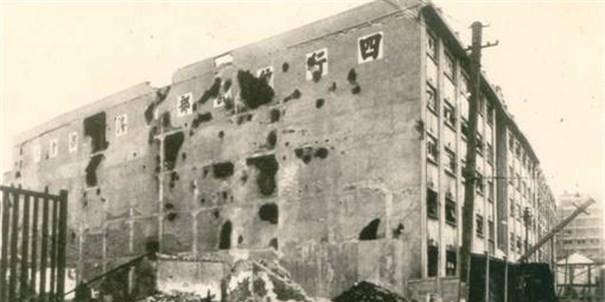“
There are countless heroes in the history of the War of Resistance Against Japan, who sacrificed their lives to defend the country, among which the "Five Heroes of Wolf's Tooth Mountain" and "Eight Hundred Heroes" are the most famous.
The historical story of the "Five Heroes of Wolf's Tooth Mountain" must have been known to everyone, and there is this lesson in the textbook. And this "eight hundred heroes" may only be mentioned, and it is not clear which battle they are in.
In fact, these 800 heroes were famous for the "800 heroes" led by the famous anti-Japanese hero Xie Jinyuan in the Battle of Songhu that broke out on August 13, 1937. At that time, Xie Jinyuan was dead in the Sihang Warehouse, and the army he led became a lone army because there was no reinforcement, but it was still very brave and fearless to resist Japan. At that time, there was only one battalion of troops holding the Sihang warehouse, and the whole regiment only had about 410 people, in order to confuse the enemy, Xie Jinyuan falsely told 800 people, so later it was called "eight hundred strong men".

At that time, Xie Jinyuan refused the help of the British troops in the concession when he was leading the "eight hundred strong men", saying: "We are Chinese soldiers, and we would rather die in the territory of Zhabei than give up the responsibility of killing the enemy." He also said, "Our souls can leave our bodies, but the gun cannot leave our hands." There is no order, and there is no retreat from death." Later, the British army once again promised Chiang Kai-shek to cover the retreat of the lone army, so that the lone army returned from the concession to western Huxi. Xie Jinyuan received the order to retreat, but as soon as he entered the concession, he was asked to collect his weapons, and Xie Jinyuan and others refused with guns and received orders from Chiang Kai-shek to cooperate with the British army.
But who knew that Xie Jinyuan and the "Eight Hundred Heroes" had just lost their weapons, and they were escorted into the vehicle by the British army and sent to Jiaozhou Road for detention. Because, at that time, the Japanese army once said: "If the lone army is allowed to return through the concession, they will drive into the concession to pursue the lone army." In this way, the "Eight Hundred Heroes" were so unclear and unintelligible that they were bound and captured. Among them, Xie Jinyuan was awarded the Highest Honor Medal of the War of Resistance by the Nationalist Government for his heroic deeds in the Battle of Songhu, the "Order of the Blue Sky and White Sun".
Xie Jinyuan was born into a family that was neither poor nor wealthy, and his father was the daughter of a small trader and a fisherman. Xie Jinyuan was very intelligent and resolute from an early age, and when he saw that the Qing government was corrupt and incompetent, internal and external troubles, the people were not happy, and the warlords divided their lives and lives, Xie Jinyuan took Yue Fei's motto of "serving the country with loyalty" and was determined to dedicate himself to the country from an early age. Therefore, when he grew up, Xie Jinyuan abandoned his pen and surrendered and was admitted to the fourth phase of the Whampoa Military Academy. Due to his excellent grades, after graduation, he successively served as a platoon commander, company commander, battalion commander, division staff officer, brigade staff chief, deputy regimental commander, and regimental commander of the Nationalist Army.
He fought in many battles and was brave and resourceful. However, after he and the "Eight Hundred Heroes" were detained, the Japanese army originally asked the concession authorities to extradite him. Under the pressure of public opinion in our country, the Ministry of Works and Bureaus have never dared to agree. Later, the Japanese puppet army used a lot of murders, and the method of assassination wanted to get rid of Xie Jinyuan and the "eight hundred heroes". Later, Xie Jinyuan saw through the traitor Wang Jingwei's treacherous plan, and Wang Jingwei failed to lure him down and on April 24, 1941, he bought a traitor in Xie Jinyuan's army and assassinated Xie Jinyuan. At that time, Xie Jinyuan was stabbed in the chest and left temple, seriously injured in many places, bleeding and dying at the age of 37.
After the news of Xie Jinyuan's murder came out, the whole country was shocked. Xie Jinyuan was posthumously awarded the title of major general by the Nationalist government, and 300,000 people in Shanghai went to mourn.